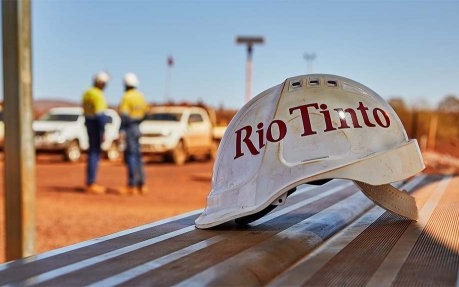Today’s News

Image Source: Mining Weekly
Rio Tinto is set to make a substantial investment of USD 6.2 billion in the development of the Simandou iron ore project in Guinea, marking its most significant venture in the coming years. This project holds the potential to significantly impact the global supply of iron ore, a key component in steel production.
The Simandou mountains in Guinea possess one of the largest untapped reserves of iron ore globally. These coveted resources have attracted considerable interest from both mining enterprises and investors, especially within a market that has historically been dominated by iron ore exports from Australia and Brazil.
Project Collaboration And Investment Plans
Rio Tinto holds rights for the development of the southern portion of the Simandou deposit in collaboration with the Guinean government and a Chinese consortium led by Aluminium Corp. of China. Meanwhile, the Winning Consortium Simandou, in partnership with the government, has secured rights to develop the northern half, with members including Singapore-based Winning International Group and China Hongqiao Group.
Rio Tinto’s CEO, Jakob Stausholm, views these capital estimates as a significant step toward unlocking the potential of this high-grade iron ore deposit. The company foresees a total investment of USD 11.6 billion in the joint venture for this project.
After a notable market decline ten years ago, mining companies globally have become more cautious about pursuing significant projects and major deals. Unlike previous years where Rio Tinto primarily focused on enhancing existing mining operations rather than expanding output, the company is now shifting its attention to larger projects.
Presently, Rio Tinto is increasing production from its Oyu Tolgoi copper operation in Mongolia. This expansion initiative is anticipated to position the mine as the world’s fourth-largest copper mine by the year 2030.
Market Perspectives And Production Estimates
The company plans to allocate approximately USD 10 billion annually for capital investments between 2024 and 2026, a portion of which, up to USD 3 billion each year, is directly tied to growth initiatives. The foremost investment during this period is anticipated to be the Simandou project once it receives approval from the Rio Tinto board.
According to the miner’s statement, “The largest investment over the next three years is expected to be Rio Tinto’s equity share of the Simandou project once approved by the Rio Tinto board, as spend starts to wind down at Oyu Tolgoi beyond 2024 with completion of the infrastructure.”
Remaining expenditure is likely to be directed towards copper and lithium projects, some of which are pending approval, as outlined by Rio Tinto.
Despite concerns raised by some analysts about potential market saturation and subsequent price pressure due to increased iron ore supply from Simandou, Rio Tinto remains optimistic. Stausholm believes that the project will proceed regardless of the company’s involvement, as the iron ore at Simandou holds significant value and quality, being of a higher grade than most existing mines worldwide.

Image Source: Bloomberg
The forecasted production from Simandou is estimated to contribute around 5% of the seaborne market, and the iron ore quality surpasses that of most existing mines globally. This superior quality makes it suitable for use in less-polluting electric arc furnaces.
Project Timeline And Market Outlook
Initial production from the Simandou mine, jointly developed by Rio Tinto, is expected to commence in 2025. The project aims to achieve an annual capacity of 60 million metric tons within approximately 30 months of ramp-up.
Stausholm remains positive about the future demand for iron ore, citing the upswing in Chinese infrastructure development and the robust state of the automotive sector as contributing factors, signaling sustained demand in the market.
Rio Tinto anticipates the commencement of initial production from the jointly developed mine in 2025. Approximately 30 months will be needed to scale up operations to achieve the planned annual capacity of 60 million metric tons.
Stausholm expressed his optimism regarding the future demand for iron ore, despite ongoing challenges affecting China’s property sector, a significant consumer of steel. He highlighted the increasing momentum in Chinese infrastructure development and the robustness of the automotive sector as positive indicators.
“All in all, there is very decent demand in China. I hope and believe that that is not just a short-term phenomenon.”
Other News
Wells Fargo Sets USD 1 Billion For Unexpected Severance Costs
Wells Fargo plans to reserve USD 1 billion for unforeseen severance costs in Q4 2023 to reduce expenses, despite decreased staff turnover. CEO Charlie Scharf hinted at further internal measures but didn’t specify job cut details.
JPMorgan’s Successful First Republic Bank Integration
JPMorgan smoothly integrates First Republic Bank, keeping 90% of customers and completing home lending consolidation. Consumer spending rebounds, but 2024’s credit card growth may slow; mortgage lending remains stable.
Santiago Bausili Expected to Lead Argentina’s Central Bank
Economist Santiago Bausili, close to Economy Minister Caputo, is set to lead Argentina’s central bank under President-elect Milei. His mainstream economics background may balance Milei’s radical proposals, aiming for stability despite calls to eradicate the central bank.



